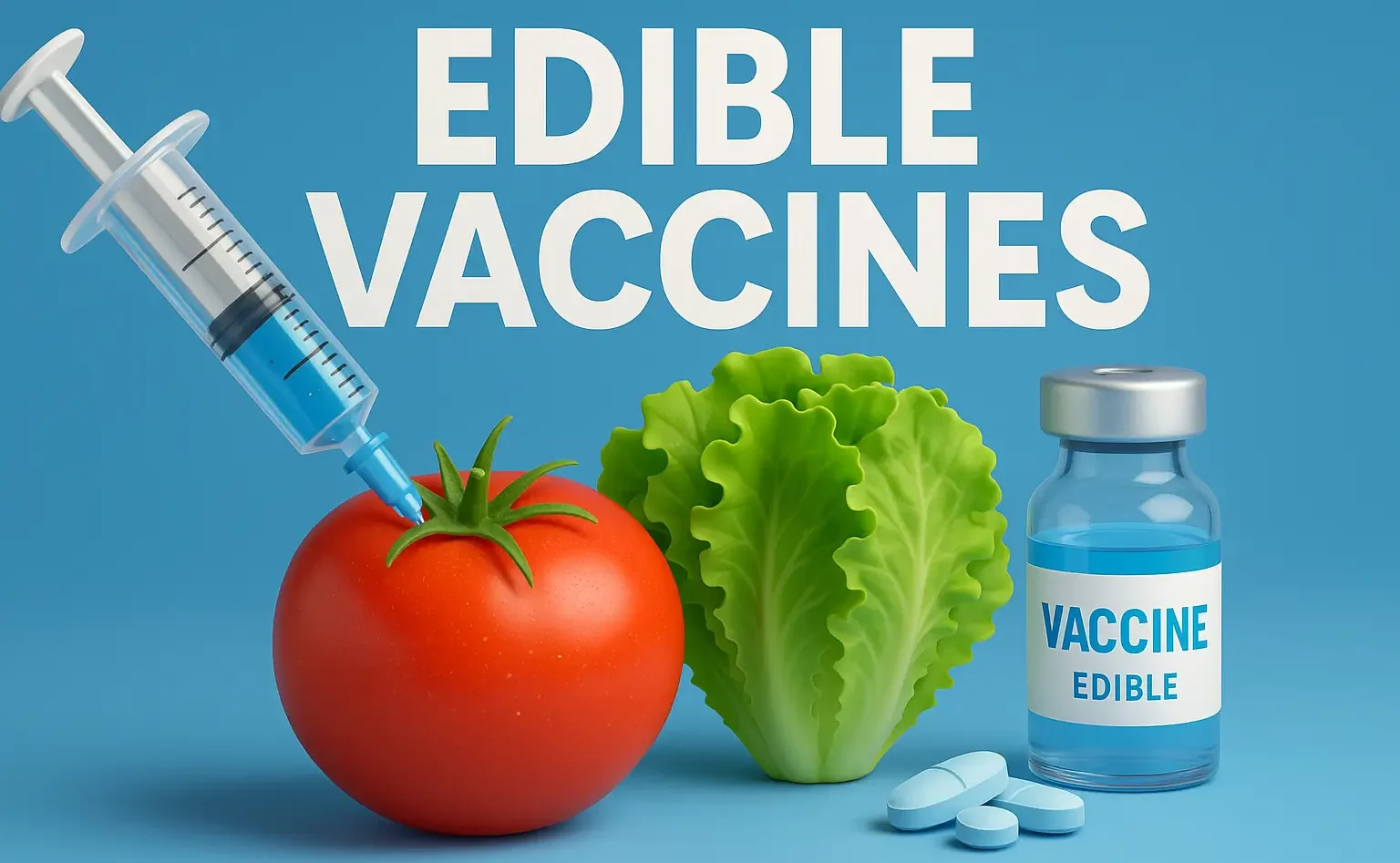What Are Edible Vaccines?
- Edible vaccines are genetically modified plants that produce antigens, which, when consumed, stimulate an immune response against specific diseases.
How Are They Made?
- A gene encoding an antigen (from a virus or bacterium) is inserted into a plant’s DNA using Agrobacterium tumefaciens or gene gun technology.
- The plant expresses the antigen, and when consumed, the body recognizes it as a foreign substance and generates immunity.
Advantages of Edible Vaccine
- Cost-Effective – No need for expensive storage and transportation.
- Easy Administration – Taken orally, eliminating the need for needles.
- Stable & Safe – Reduces the risk of contamination.
- Mass Production Possible – Can be grown in fields like regular crops.
Examples of Edible Vaccine
| Plant | Target Disease |
| Banana | Hepatitis B |
| Potato | Cholera |
| Tomato | Rabies |
| Rice | Rotavirus Diarrhea |
Challenges of Edible Vaccine
- Dosage Standardization – Difficult to determine the exact antigen dose per fruit/vegetable.
- Public Acceptance – Concerns about genetically modified (GM) crops.
- Regulatory Issues – Approval from health authorities needed.
Future Prospects
- Edible vaccines offer a promising alternative to conventional vaccines, especially for developing countries, where they can help in mass immunization without requiring complex infrastructure.
Click Here to Watch the Best Pharma Videos

